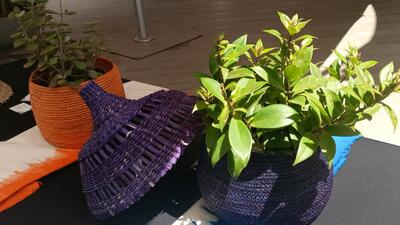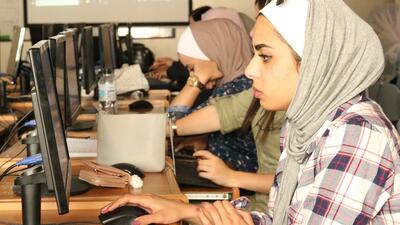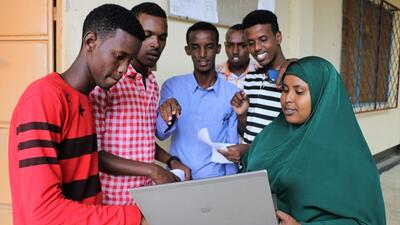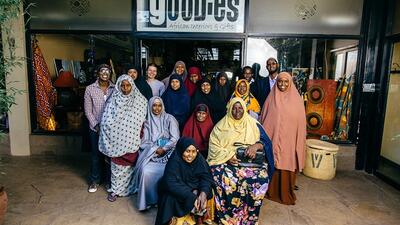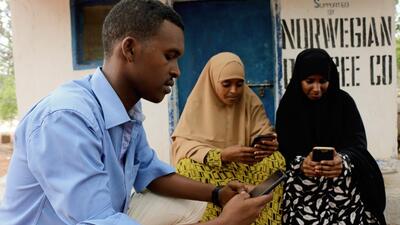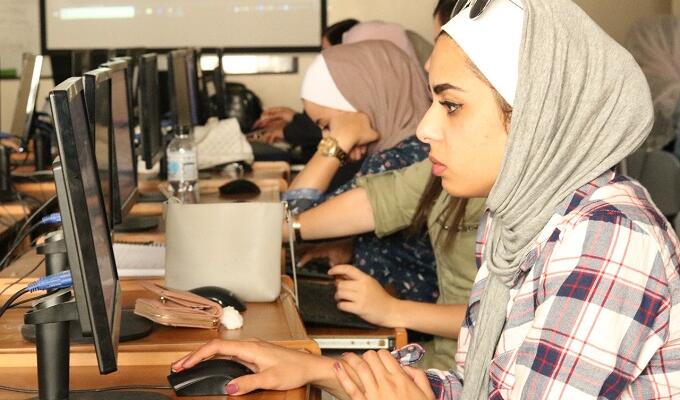
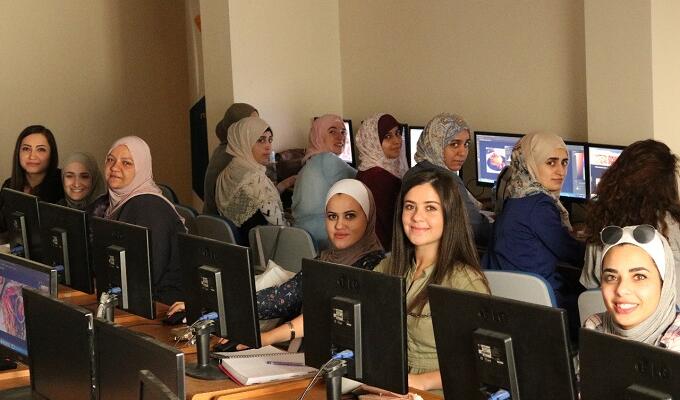

Digital training project makes Syrian refugee a ‘wonderful success story’
Everyone likes to feel like a winner, and Mohammad Al-Rabdawi says he now counts himself as one.
Since fleeing the war in Syria to neighbouring Jordan and successfully applying to an International Trade Centre (ITC) training programme in graphic design, Mohammad has set up his own business. Within just one month of starting the course, the 28-year-old former law student won his first contract to design a banner and a sticker stopper for a Jordanian client.
‘I think I am a wonderful success story,’ Mohammad said. ‘I would have worked in Jordan at pizza restaurants or a factory, but I saw the RESI project as an opportunity to prove myself and demonstrate my ability to learn and gain new things in life.’
RESI, short for Refugee Employment and Skills Initiative, uses market-based incentives to promote sustainable livelihoods for refugees and members of a host country so they can gain commercially viable skills. The Government of Japan funds the RESI Jordan project, which trains students – particularly young people – in front-end web development as well as graphic design and is implemented in partnership with the Information and Communications Technology Association – Jordan.
Jordan hosts more than 650,000 registered Syrian refugees, who make up about 7% of the country’s population. RESI aims to equip refugees with skills and experiences that they will be able to take with them either back to Syria or to a resettlement country.
The four-month technical and vocational training programme is equipping participants like Mohammad to use digital channels as a new and innovative way to connect with clients, secure contracts and enter new markets, explains ITC project manager Eman Beseiso. The 86 students – half of whom are women and about 60% of whom are Jordanians, with the rest refugees – were selected from 650 applicants for the programme. About 42 receive training on front-end development and the rest are focusing on graphic design
‘At a later stage, students and their mentors will provide online marketing support to local small and medium-sized enterprises (SMEs) from the information and communications technology sector, helping the students and the SMEs alike,’ Eman added.
Trainees learn about more than just graphic design and website development, says Taulant Ukmata, an online education expert who is leading the training work in Jordan.
‘In parallel, we are also offering them soft skills training and an introduction to freelance marketplaces such Upwork, Fiverr and other sources which they can use to promote their services and contact interested clients directly,’ he said. ‘We believe that through this combination we will not only prepare them for a graphic design role, but we will also create independent freelancers who can find their own clients and become financially independent.’ Course participants are learning to develop and manage online profiles on digital freelance platforms.
RESI helps women build careers
One of those is Abeer Al-Sha’ar, a 30-year-old Jordanian who had worked as a graphic designer before stopping in 2014 to raise a family. When she decided to resume her career, she struggled to find a job.
‘Because I had been out of work for four years, I forgot many techniques,’ she said, adding that the offers she did get from prospective employers all came with low salaries. ‘The training course brought it back for me and now I have a lot of experience from the training, like how to work online.’
Just a month into the course, she landed a contract via global freelancing platform Upwork to create a banner. ‘I did it and I had a good rate and feedback from the client,’ she said.
Operating online is particularly valuable for women, who may not be able to work outside the home for personal or cultural reasons, Abeer says.
The main limitation facing another course participant, Duaa’ Al Hashmi, was that she had a degree in pharmacy, even though her dream was to become a graphic designer. The 23-year-old Iraqi jumped at the opportunity to join the RESI programme. She is already starting to work as a graphic design freelancer and is confident that once she completes the training, she will be an expert in her field. Duaa’ secured her first graphic design contract within the first month of the course, winning a bid on Upwork to design a banner for a Jordanian client.
More trainees may clinch sales before the course ends in October, Eman says. ‘Creating linkages between refugees and local SMEs, multinationals and digital marketplaces is the centre of our work at this stage,’ she said. ‘We are confident that more jobs will be secured and more participants will be able to make transactions before the end of this project.’
Mohammad, for his part, is upbeat about the RESI programme.
‘When I joined the training, many things changed in my life and everything became valuable to me; the training, the students, the teacher, the information and everything,’ he said. ‘I think it's the nicest job I've ever done in my life.’




